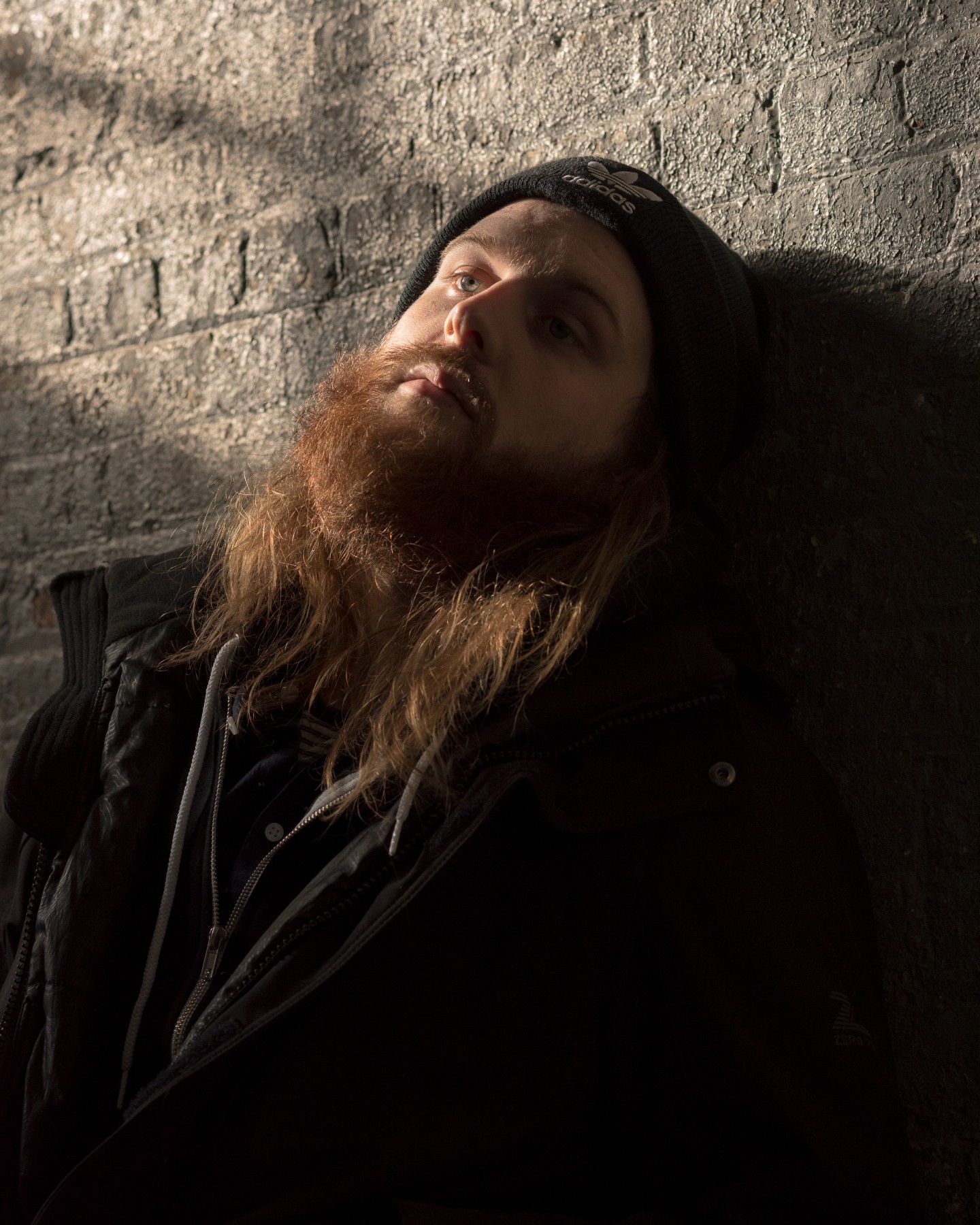
The FADER's longstanding series GEN F profiles emerging artists to know now.
Cameron Boucher’s favorite song is “A Better Son/Daughter,” a devastating account of manic depression from Rilo Kiley’s career-making 2002 full-length, The Execution of All Things. The track starts quiet and claustrophobic-like, and then it erupts. “Sometimes when you’re on, you’re really fucking on!/ And your friends they sing along and they love you!” Jenny Lewis belts, her song’s dynamic shift mirroring the unnatural rush of a mood swing. “It’s just, like, all the way,” said Boucher, the frontman of the rock band Sorority Noise. “Sometimes I'll write like, I think I'm being very real here, but I don't think I’ll ever be as real as that.” Sorority Noise fans, the ones who listen to his sad songs and find something like hope, I’m pretty sure would loudly disagree.
Boucher, a scraggly-haired, full-bearded 23-year-old with a never-finished Smiths tattoo on his bicep, has long struggled with serious mental health issues of his own. He speaks of them unselfconsciously: in songs, in past interviews, and with me, when we meet on his recent trip to New York City, where he was visiting for a few days to play a benefit gig for the local chapter of the Council on American-Islamic Relations. He formed Sorority Noise in 2013 at college in Connecticut, as a somewhat softer alternative to his still-active high school screamo band, Old Gray. Though he grew up in New Hampshire, Boucher currently rents a dirt-cheap room in Philadelphia to crash in between tours. (“The mice are probably doing some Pied Piper-esque parade around my house right now,” he said, cringing.) Today, the Sorority Noise lineup includes Boucher’s lifelong pal Adam Ackerman, a guitarist, plus bassist Ryan McKenna and drummer Charlie Singer.

Boucher writes songs super fast, usually near the beginning or end of a bad depressive episode. “When I'm just trying to grapple with my thoughts,” he said. The Sorority Noise tracks born from these moments are usually labeled as emo by journalists, and they do have a lot in common with music from the divisive genre’s early- to mid-’00s third wave, when groups like Brand New and Say Anything won over dewy-eyed suburban teens with epic-sounding breakup songs. Boucher’s bleak lyrics address romantic torment, but also suicide, drugs, and paralyzing self-doubt. “I wanted people to be uncomfortable by how personal it was,” Boucher said of the new Sorority Noise record, You’re Not As ____ As You Think, out in March on Triple Crown, the 20-year-old rock label that helped spark the careers of a handful of Sorority Noise’s zeitgeisty forbearers. The band even tapped Brand New producer Mike Sappone to make the album shimmer, though Boucher sometimes sings like he’s delivering an unhinged monologue, which keeps things from sounding too pretty and calls back to the DIY house shows where emo started to begin with.



The record is full of allusions to his friends and heroes — Modern Baseball, Julien Baker, Broken Social Scene; there’s even a nod to Rilo Kiley with “A Better Sun.” But its most prominent theme is grief over the tragic deaths of Boucher’s close friends, including Corey, who overdosed last year, and Sean, a cross-country runner who killed himself in 2015. “So go out and have fun/ Let loose and I’ll daydream of the noose that took my friend Sean’s life,” he sings on “Dissapeared,” a deceptively cheery highlight with jumpy drums and a scream-along hook. “I have this idea that he regretted doing what he did,” Boucher said. “I know that a minute later, he would have…” He stopped for a second. “It’s hard to tell someone how much you love them when they’re not around anymore. These songs made it permanent for me. I will constantly have to remember these people for a long time.” The album’s cover is a low-angled photograph of a cross-country race, the front runner's silhouette half-swallowed by the sun.
Boucher identifies as a Christian, and his shifting ideas about religion seep into his writings. It’s an interesting time for faith in popular music — although Chance The Rapper’s hip-hop psalms are notably brighter than anything that’s come from Boucher’s fraught psyche. “When God called you to fill a vacancy/ I tried to see why it wasn’t me,” he sings on “No Halo,” the new album’s noisy opener. It makes sense that spirituality would appeal to someone struggling with chronic depression, especially if they've experienced loss, too. “It was easier for me to swallow that my friends are watching me from a greater place, rather than just in a grave being eaten by worms,” Boucher told me. But it’s not like he brings the band to church on Sunday or anything; for Boucher, being a Christian means praying when he feels like it, and living by a self-defined moral code. “I smoke weed,” he told me. “I feel like God's cool with weed.”
